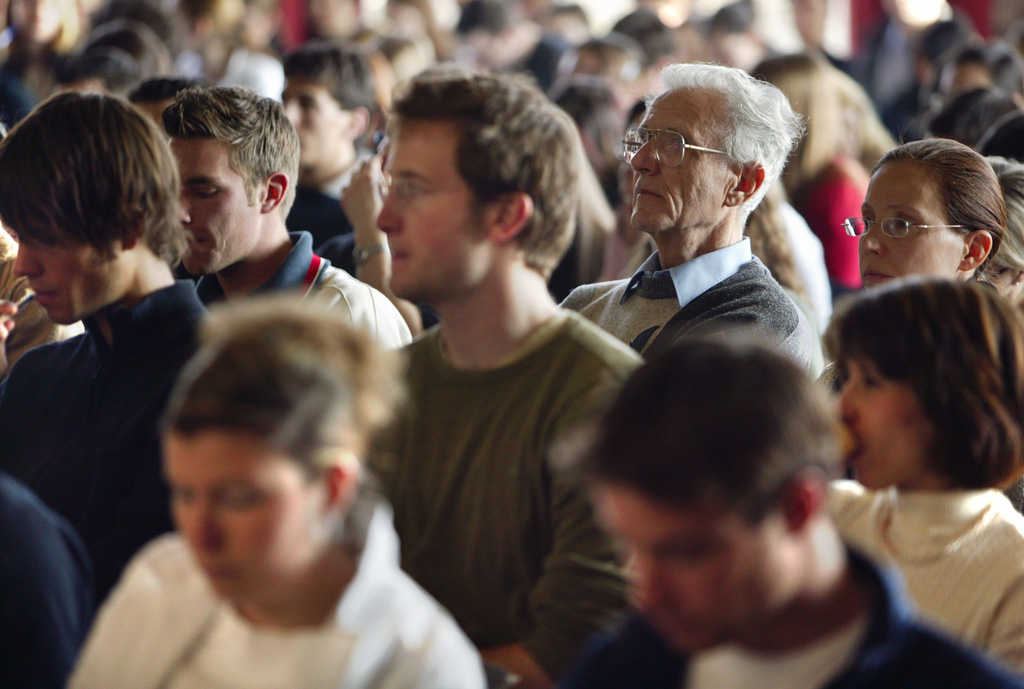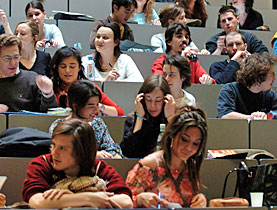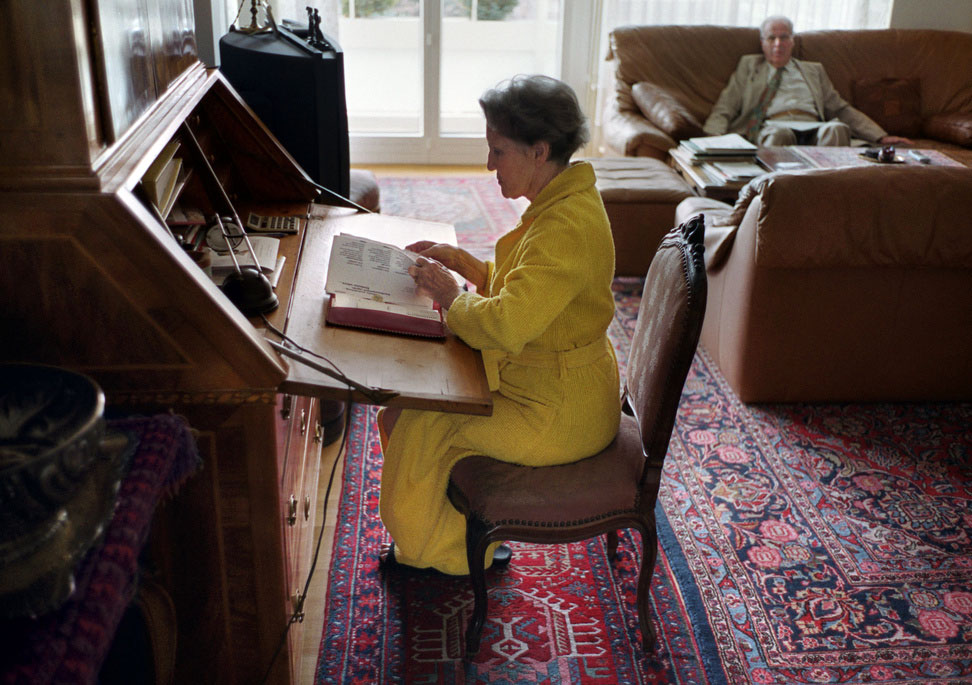Heading to university in retirement

In Switzerland, like across Europe, an ever-greying population is creating greater demand for late adult education.
Courses for the over-60s in the country, which are run by the University of the Third Age (U3A), have been receiving record numbers of applications.
Typically attached to established universities, Switzerland has nine such institutions. Each offers a programme of around 30 lectures spread over the academic year.
At Bern University’s German branch of the U3A, applications have nearly doubled in the past ten years. There were 950 applicants for the 2010-2011 academic year.
There, around 250 people attend lectures on topics as diverse as building violins or hormones and ageing.
Jean-Pierre Javet, of the Swiss Federation of Universities of the Third Age, puts the rise down to not only a larger older population, but also the cheap cost, and the widening diversity of subjects on offer. A one-off fee of SFr60-85 ($59-84) entitles members to attend around 50 lectures a year.
“I think we can say that in general that it is because these universities offer programmes that are of definite interest. If you look at the programmes of the different universities, they cover a wide range of things. History, literature, medicine, music,” he told swissinfo.ch.
“Every area is touched on and it is usually university professors who give the seminars,”
Programmes are designed so no prior university education is needed. He said people often join in order to build on the knowledge or training they already have.
“Open spirit”
Nelly Tarabusi, a 62-year-old former union worker from Bern, is starting her third year at Bern University’s French branch of U3A.
“I do it to learn more about certain subjects that I am interested in and to continue to have contact with the French language. In Bern, use of French is declining a bit and it’s a chance to find people who speak the same language as me,” she said.
“If there is a subject that interests you, after a lecture you can go and find out more about it. Perhaps read certain books or travel. I think it is very important for people who stop working to continue to have interests in things. It allows you to continue to have an open spirit.”
For some, the courses can have a vital social function, giving people who are alone the chance to meet and interact with others.
Star attractions
Such programmes are a relatively new phenomenon worldwide. The first U3A was created in Toulouse in France in 1973 by Pierre Vellas. Two years later the first such programme began in Geneva.
Nine U3A institutions are now operating in French, Italian and German-speaking parts of the country, but the Swiss federation is still hoping to attract more students.
Javet admits that one way of boosting numbers is to have a few star attractions.
This semester Switzerland’s first astronaut Claude Nicollier, himself aged 66, will be giving seminars in Geneva and in Bern.
Another big speaker will be Zurich surgeon René Prêtre, who was named Swiss of the Year in 2009.
“For the attractiveness of the programme and to attract new members we try to have one or two big personalities. I think it’s necessary. But the essential elements of the conferences are given by university professors,” said Javet.
“With this system we want to give the ‘third age’ generation more purpose, and the chance to do something after their professional activity ends.”
“That was in the idea of the founder of the University of the Third Age, to add life to the elderly so the elderly can add more to life. That was his initial doctrine and it is still valid today,” he concluded.
The nine Universities of the Third Age cater to around 13,000 students.
During the 2009-2010 academic year the branches organised 532 lectures on literature, music, medicine, history, architecture, philosophy, religion and mathematics, among others, and 200 seminars and workshops.
The branches held 150 cultural visits, excursions and trip, attended by 6,500 people.
The University of the Third Age (U3A) is an international organisation that aims to educate and stimulate people who have retired – or those in the ‘third age’ of life.
The U3A began in France as a result of a Toulouse summer school for retired people in 1972. The first Université du Troisième Age was started by Pierre Vellas at the Faculty of Social Sciences in Toulouse in 1973.
The idea spread to other towns and then outside France.
In 1980 the International Association of Universities of the Third Age (AIUTA) was established.
In 1998, the U3A started to cater to isolated people from any country. It now offers around 35 courses.
In 2009, the Virtual U3A was launched to help members network.
Typical courses include art, classical studies, computers, drama, history, languages and sciences.

In compliance with the JTI standards
More: SWI swissinfo.ch certified by the Journalism Trust Initiative





You can find an overview of ongoing debates with our journalists here. Please join us!
If you want to start a conversation about a topic raised in this article or want to report factual errors, email us at english@swissinfo.ch.